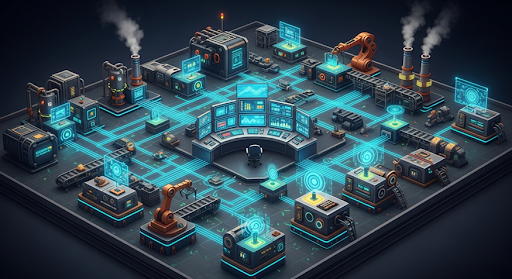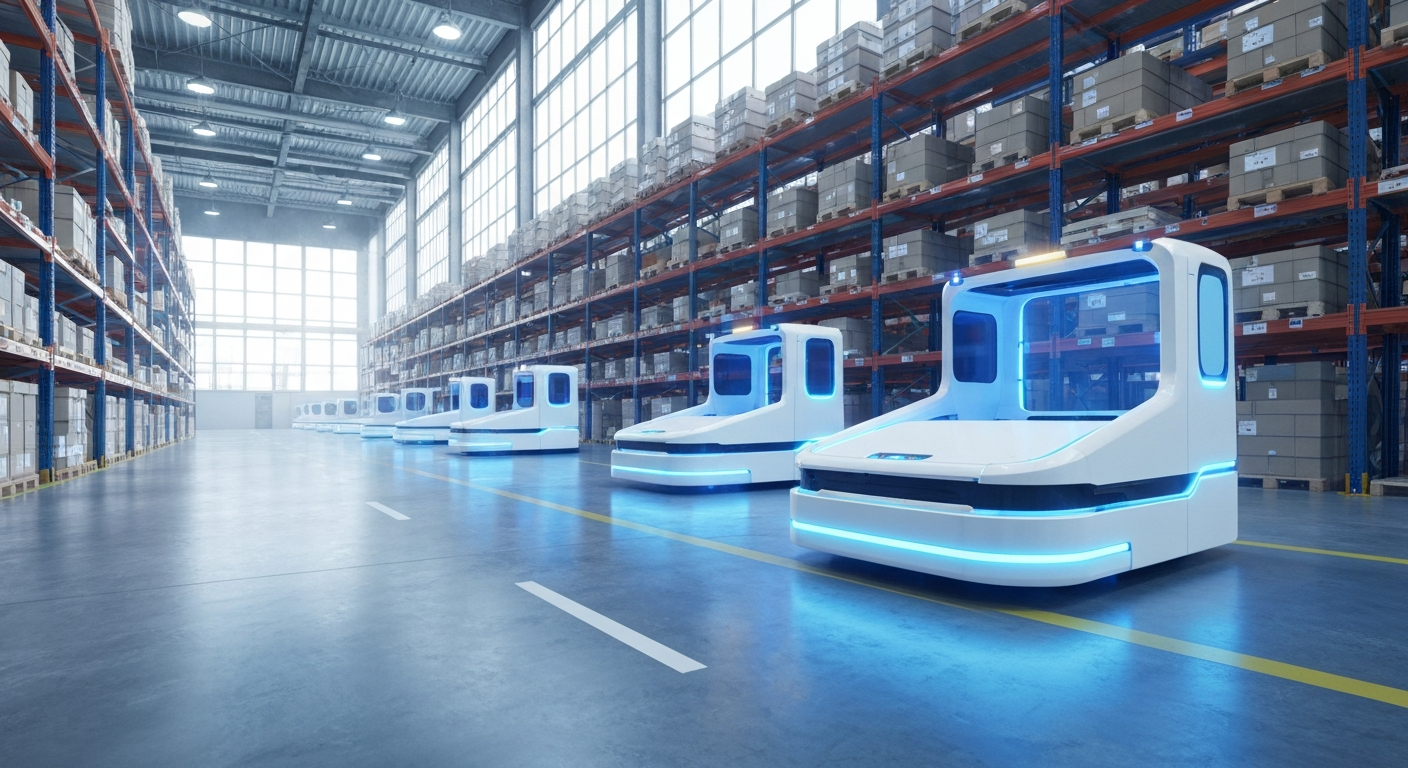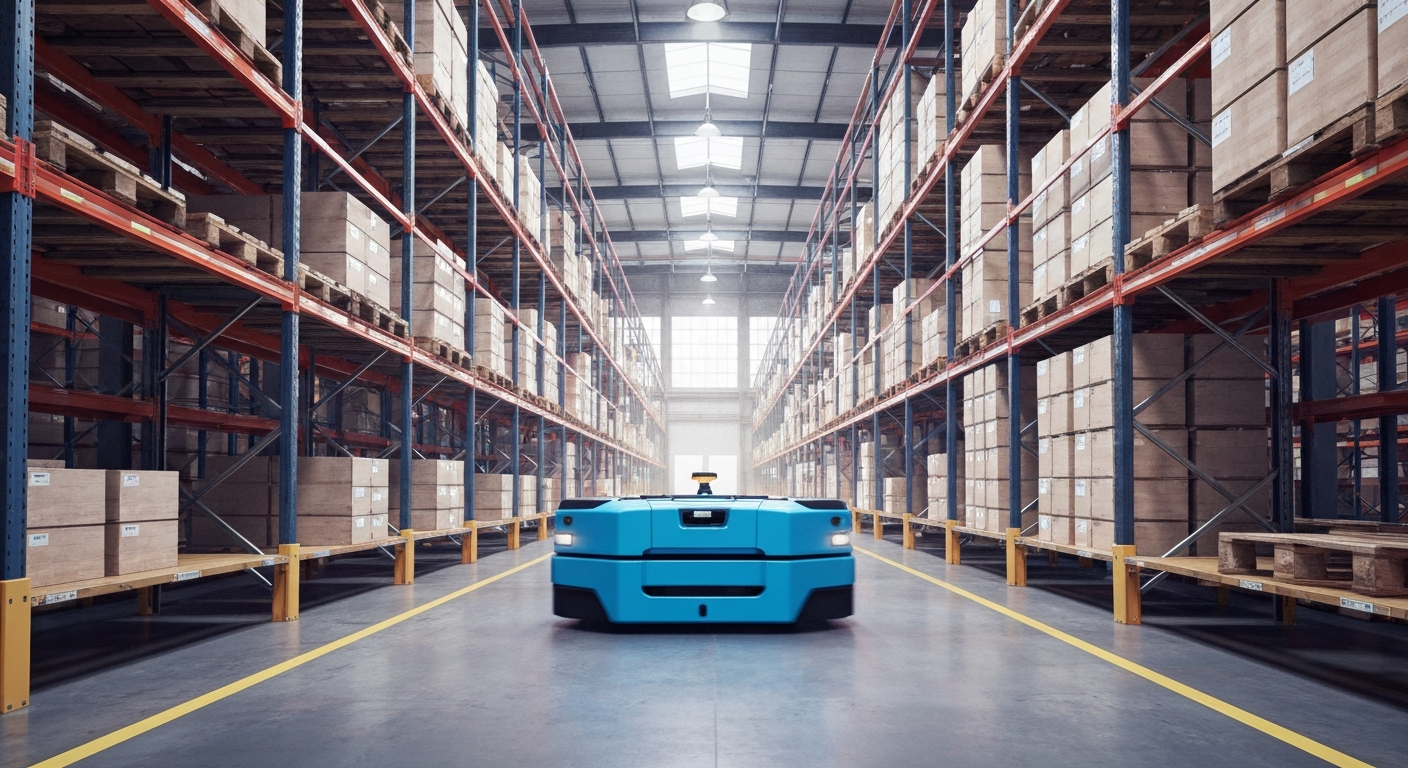Key Impacts of the 4th Industrial Revolution
Key Impacts of the 4th Industrial Revolution
The fourth industrial revolution, commonly referred to as Industry 4.0, has ushered in a new era of technological advancements and transformative changes across multiple industries. This revolution represents a fusion of cutting-edge technologies such as artificial intelligence, robotics, Internet of Things (IoT), and data analytics, among others. These revolutionary advancements have not only disrupted traditional business models but have also unlocked unprecedented opportunities for innovation and growth. The impact of Industry 4. 0 can be observed in sectors ranging from manufacturing and logistics to healthcare and agriculture, where automation, connectivity, and data-driven insights are driving efficiency gains, improving productivity levels, and enhancing overall operational performance. As we continue to embrace the fourth industrial revolution's potential, we are witnessing an exciting landscape where businesses are increasingly leveraging these transformative technologies to gain a competitive edge in the global market. The ongoing revolution in manufacturing is marked by the seamless integration of cutting-edge digital technologies into various processes, leading to a significant boost in automation levels, enhanced connectivity, and efficient data exchange. This integration allows for streamlined operations, improved production efficiency, and better decision-making based on real-time data insights. As a result, manufacturers are able to optimize their workflows, reduce costs, and deliver higher quality products in a more timely manner.
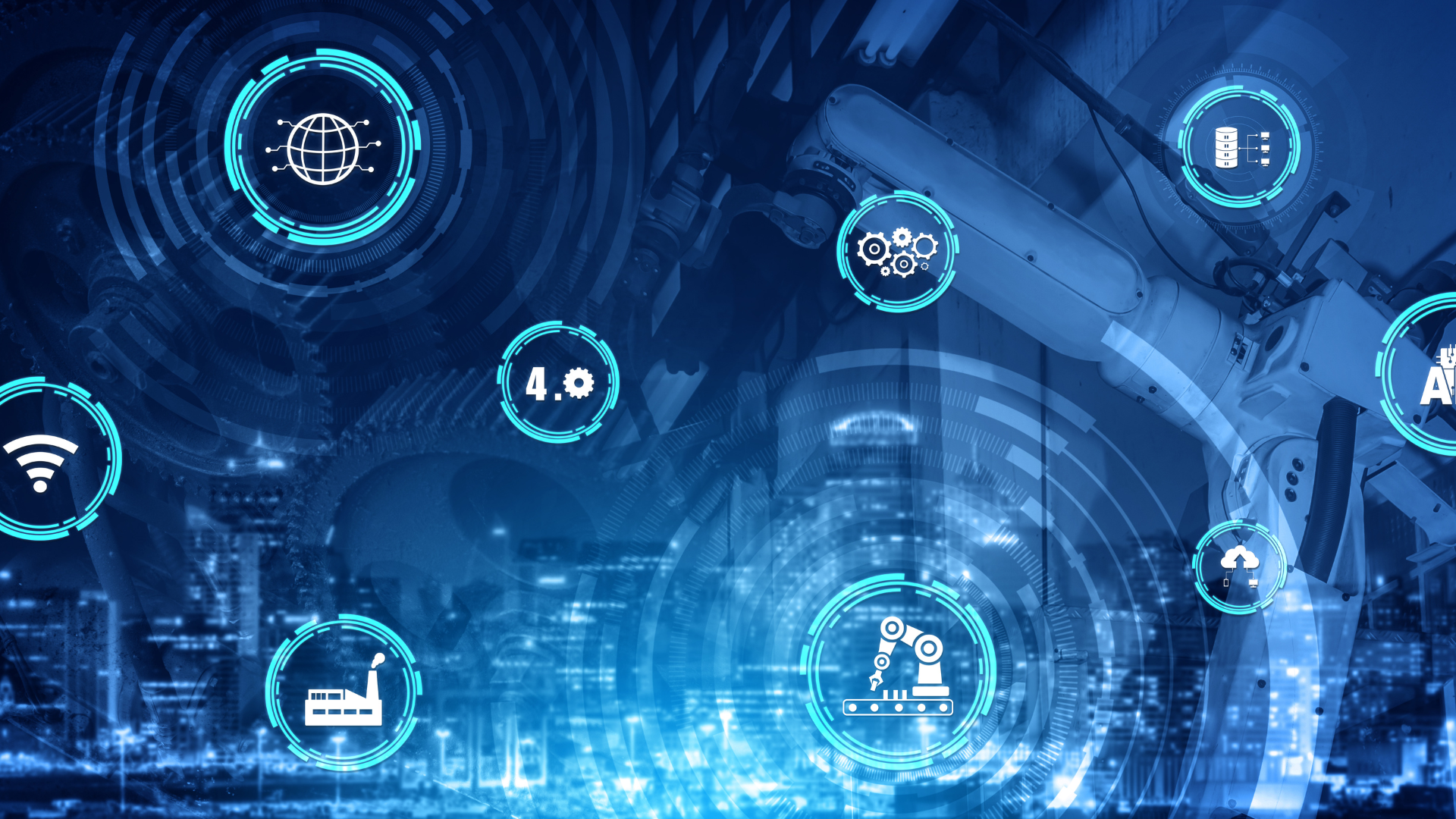
Industry 4.0 Examples
The advent of Industry 4. 0 has brought about a revolutionary transformation in the business landscape by introducing a diverse array of cutting-edge technologies. These technological advancements have completely altered the way businesses operate, enabling them to achieve unprecedented levels of efficiency, productivity, and innovation. From artificial intelligence and machine learning to robotics and the Internet of Things (IoT), these technologies have reshaped various sectors, including manufacturing, logistics, healthcare, and finance. By seamlessly integrating these technologies into their operations, businesses can streamline processes, optimize resource allocation, enhance decision-making capabilities, and gain a competitive edge in today's rapidly evolving market.
There are several cutting-edge technologies that are revolutionizing the way we live and work. One of these is artificial intelligence (AI), which refers to the development of computer systems that can perform tasks typically requiring human intelligence. These AI-powered systems are capable of understanding natural language, recognizing patterns, and making intelligent decisions. Another technology making its mark is the Internet of Things (IoT). This refers to the network of interconnected devices embedded with sensors, software, and other technologies that enable them to collect and exchange data. The IoT has transformed various industries by enabling smart homes, connected cars, and efficient supply chain management. Big data analytics is yet another game-changing technology. With the exponential growth in digital data, organizations can now extract valuable insights from vast amounts of information. By analyzing this data using advanced algorithms and machine learning techniques, businesses can make informed decisions, improve efficiency, and gain a competitive advantage. Robotics has also made significant advancements in recent years. From autonomous machines on factory floors to robots used in healthcare settings, these intelligent machines have improved productivity, accuracy, and safety across industries. Lastly, cloud computing has become an essential tool for businesses of all sizes. It enables organizations to store and access data or applications over the internet rather than relying solely on local servers or personal computers. This technology provides scalability, flexibility, cost savings, and enhanced collaboration opportunities for businesses worldwide. These examples illustrate how these technologies have transformed various sectors by enhancing efficiency, productivity levels while opening up new possibilities for innovation and growth.
The implementation of these cutting-edge technologies empowers companies to streamline their production processes, resulting in optimized operations that drive efficiency and effectiveness. By leveraging these tools, organizations can not only reduce costs but also enhance overall productivity levels. These technologies enable businesses to automate manual tasks, improve resource allocation, and leverage data-driven insights to make informed decisions. The benefits extend beyond cost reduction as they contribute to improved product quality, faster time-to-market, and increased customer satisfaction. With the continued advancements in technology, companies have more opportunities than ever before to unlock their full potential and gain a competitive edge in today's rapidly evolving business landscape.

Fourth Industrial Revolution Skills
As we transition into the era of Industry 4. 0, it is crucial to recognize that one of its key impacts is the significant shift in the skill sets demanded by the modern workforce. With advancements in technology and automation, traditional job roles are being redefined, creating a pressing need for individuals to acquire new skills that align with the evolving demands of this digital age. This transformative shift necessitates a proactive approach to learning and upskilling, as employees must adapt to emerging technologies such as artificial intelligence, robotics, data analytics, and cybersecurity. By embracing these new skill sets, individuals can not only stay relevant in their respective fields but also contribute effectively towards the success of their organizations amidst this technology-driven revolution. In today's rapidly evolving world, the increased use of automation and digital technologies has created a significant demand for skilled professionals who possess expertise in various fields. Areas such as data analysis, programming, cybersecurity, and machine learning have emerged as crucial domains that require specialized knowledge.
The demand for individuals well-versed in data analysis is driven by the need to extract meaningful insights from vast amounts of information. This skill enables organizations to make informed decisions and develop effective strategies based on accurate interpretations of data. Proficiency in programming languages has become essential due to the widespread adoption of technology across industries. Programming skills empower individuals to develop innovative solutions, automate processes, and create efficient software systems that drive productivity. Cybersecurity expertise has gained paramount importance in recent years as cyber threats continue to grow in complexity and frequency. Organizations are seeking professionals who can protect sensitive information, identify vulnerabilities, and implement robust security measures that safeguard against potential breaches. Machine learning has revolutionized various sectors by enabling computers to learn from data without being explicitly programmed. Individuals with proficiency in this field can develop sophisticated algorithms that enhance decision-making processes, automate tasks, and enable predictive analytics. As the reliance on automation and digital technologies continues to increase, so does the demand for individuals with expertise in these areas. Developing skills in data analysis, programming, cybersecurity, and machine learning opens up a plethora of career opportunities while contributing significantly to one's professional growth amidst this technological revolution.

Industry 4.0 in Manufacturing PDF
Within the manufacturing industry, the revolutionary concept of Industry 4. 0 has brought about remarkable advancements in production processes. This paradigm shift has been made possible through the widespread adoption of smart factories, which integrate cutting-edge technologies such as AI, IoT, and automation. By leveraging these technologies, manufacturers can optimize their operations by streamlining processes, enhancing productivity, and reducing costs. Smart factories enable real-time monitoring of machinery and equipment performance, allowing for predictive maintenance and minimizing downtime. Furthermore, Industry 4. 0 facilitates seamless communication between different components within the production line through interconnected systems. This enables efficient data exchange and analysis, leading to data-driven decision-making that drives continuous improvement. The benefits of Industry 4. 0 extend beyond improving productivity; it also enables organizations to enhance product quality by implementing advanced quality control systems throughout the manufacturing process. With real-time data collection and analysis capabilities, manufacturers can identify deviations from optimal performance and take corrective measures promptly.
Moreover, smart factories empower manufacturers with the ability to meet growing customer demands for customization and personalization. By harnessing AI algorithms and machine learning techniques, manufacturers can adapt their production processes to cater to individual customer requirements more effectively. In conclusion, Industry 4. 0's integration of smart factories into manufacturing has revolutionized production processes by providing unprecedented levels of efficiency, cost savings, improved product quality control, as well as enhanced customization capabilities for businesses operating in this sector. These cutting-edge factories utilize the power of Internet of Things (IoT) devices to seamlessly connect machines and systems, thereby enabling real-time monitoring and control capabilities. By leveraging IoT technology, these factories can gather data from various sources in real-time, allowing for immediate insights and quick decision-making. This connectivity also facilitates efficient coordination among different components of the production process, resulting in enhanced productivity and streamlined operations. With IoT devices acting as a bridge between machines and systems, these factories can achieve a new level of efficiency and optimization in their manufacturing processes. The utilization of AI technology in production operations has proven to be highly beneficial, resulting in a significant enhancement of both efficiency and flexibility. By leveraging AI capabilities, companies are able to streamline their production processes, reducing inefficiencies and optimizing resource allocation. This ultimately leads to improved productivity levels and cost savings. Additionally, the integration of AI into production operations enables businesses to adapt quickly to changing market demands and trends, allowing for increased flexibility in meeting customer needs. The combination of enhanced efficiency and flexibility empowers organizations to stay competitive in today's fast-paced business landscape.
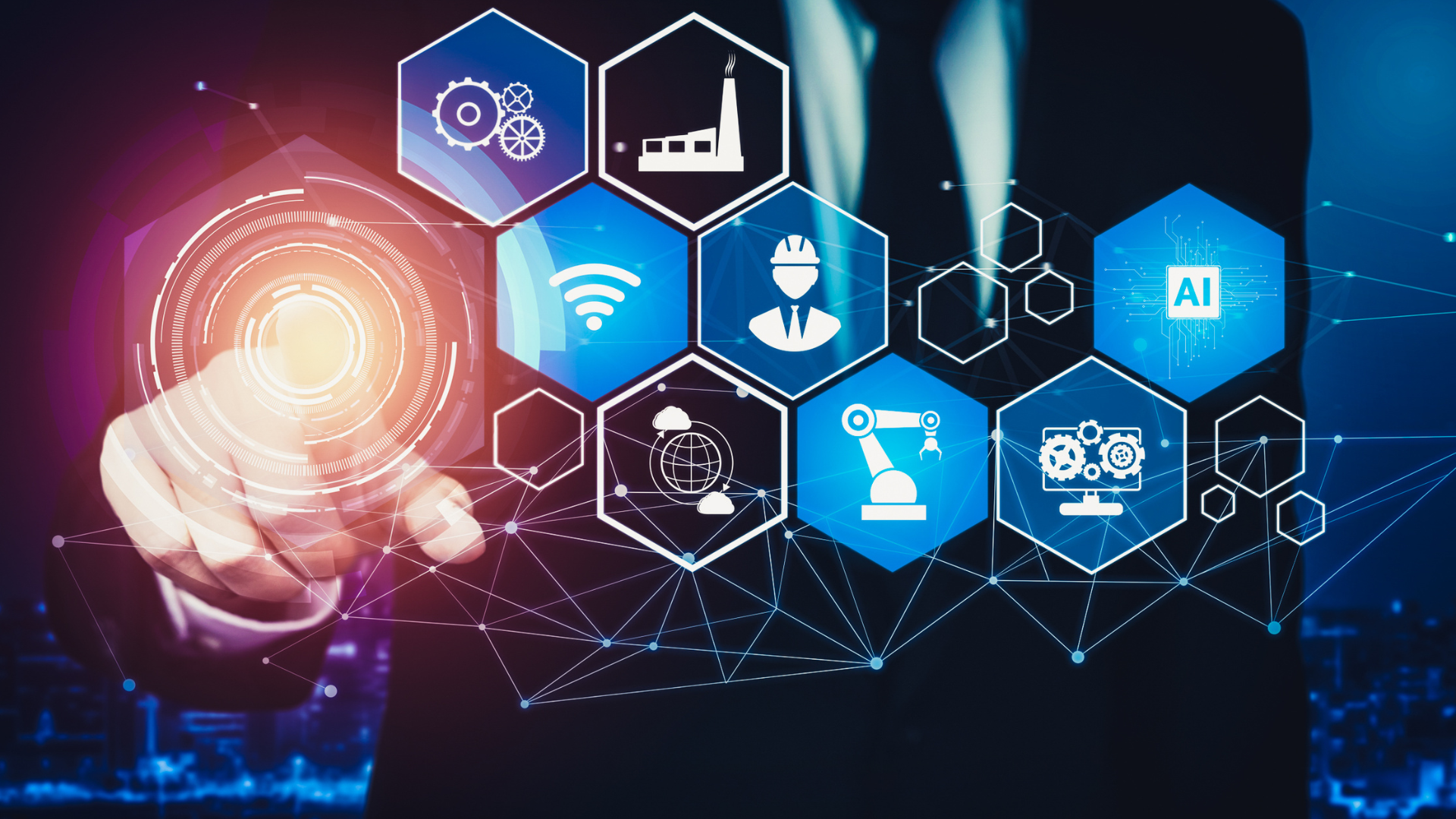
Benefits of Industry 4.0 PDF
The benefits of Industry 4. 0, also known as the fourth industrial revolution, extend far beyond the manufacturing sector. This technological advancement has had a profound impact on various sectors including healthcare, transportation, energy management, and agriculture. In healthcare, Industry 4. 0 has enabled advancements such as telemedicine and remote patient monitoring, leading to improved access to healthcare services and better patient outcomes. In transportation, smart technologies have facilitated automation and optimization of logistics operations, resulting in increased efficiency and reduced costs. Energy management has also been positively affected by Industry 4. 0 with the integration of smart grids and renewable energy sources for more sustainable resource consumption. Additionally, in agriculture, precision farming techniques driven by IoT devices and data analytics have revolutionized farming practices by enabling farmers to monitor crop health, optimize irrigation systems, and enhance overall productivity. It's clear that the benefits of Industry 4. 0 are diverse and have the potential to transform numerous sectors for the betterment of society as a whole.
In today's rapidly evolving digital landscape, organizations have the opportunity to leverage advanced technologies and data-driven insights offered by Industry 4. 0 solutions. By capitalizing on these cutting-edge tools, businesses can optimize their operations to achieve superior outcomes and gain a competitive edge in the market. Industry 4. 0 solutions incorporate innovative technologies such as artificial intelligence, machine learning, internet of things (IoT), and big data analytics. These technologies enable organizations to collect, analyze, and interpret vast amounts of data from various sources in real-time. By harnessing this wealth of information, businesses can make more informed decisions and identify areas for improvement within their operations. Furthermore, Industry 4. 0 solutions provide automation capabilities that streamline processes and reduce human error. Tasks that were once time-consuming or prone to mistakes can now be automated with the help of intelligent systems. This not only saves valuable time but also enhances efficiency throughout the organization. The insights derived from Industry 4. 0 solutions allow organizations to implement predictive maintenance strategies, optimize supply chain management, improve product quality control, enhance customer experience, and drive innovation within their respective industries. By embracing these advanced technologies and leveraging data-driven insights provided by Industry 4. 0 solutions, organizations can unlock significant operational efficiencies and achieve better outcomes across all facets of their business. This transformative approach not only enhances productivity but also positions companies for long-term success in an increasingly competitive marketplace.
Industry 4.0 Technologies PDF
It is crucial to highlight the significant advantages that come with the implementation of Industry 4. 0. Notably, this revolution brings about increased productivity and cost savings, which can greatly benefit businesses of all sizes. However, it is essential to acknowledge that along with these advantages, there are also challenges that need to be addressed. One major challenge in Industry 4. 0 is cybersecurity risks. As technology becomes more interconnected and data-driven, there is an increased risk of cyber threats and vulnerabilities. Organizations must invest in robust cybersecurity measures to protect their systems and sensitive information from potential breaches. Furthermore, another challenge posed by Industry 4. 0 is the potential displacement of jobs due to automation. As machines and AI-powered systems become more capable of performing tasks traditionally done by humans, certain job roles may become obsolete or require re-skilling. It is crucial for businesses and policymakers to anticipate these changes and develop strategies for upskilling or retraining affected workers. While the benefits of implementing Industry 4. 0 are substantial, it is essential for organizations to proactively address these challenges in order to ensure a smooth transition into this new era of advanced technology and automation.
Industry 4.0 Technologies Meaning
The fourth industrial revolution has undoubtedly left a lasting impact on various industries across the globe. This revolutionary era has introduced transformative technologies that are reshaping the way businesses operate and thrive. These technologies have a profound effect on enhancing efficiency, reliability, and productivity within organizations. Moreover, this shift towards advanced technologies demands a new set of skills from workers. As traditional job roles evolve, employees must adapt to the changing landscape by acquiring expertise in these emerging fields. This includes mastering skills in areas such as artificial intelligence, machine learning, data analysis, and automation. By embracing these transformative technologies and equipping their workforce with the necessary skill sets, industries can unlock new opportunities for growth and innovation. The fourth industrial revolution serves as a catalyst for organizations to optimize their operations and drive sustainable success in an increasingly competitive global market.
The widespread adoption of AI technology is not only transforming the present but also shaping the future landscape across various sectors. By embracing AI, businesses are paving the way for innovation, digitalization, and improved overall performance. With AI's capabilities, organizations can streamline their processes, make data-driven decisions, and enhance customer experiences. This transformative technology has opened up new avenues for growth and competitiveness in today's rapidly evolving business environment. As a result, industries ranging from healthcare to finance are leveraging AI to drive efficiency, optimize operations, and unlock unprecedented opportunities for success. The continuous integration of AI into different sectors is revolutionizing how businesses operate and setting the stage for a more technologically advanced future.

